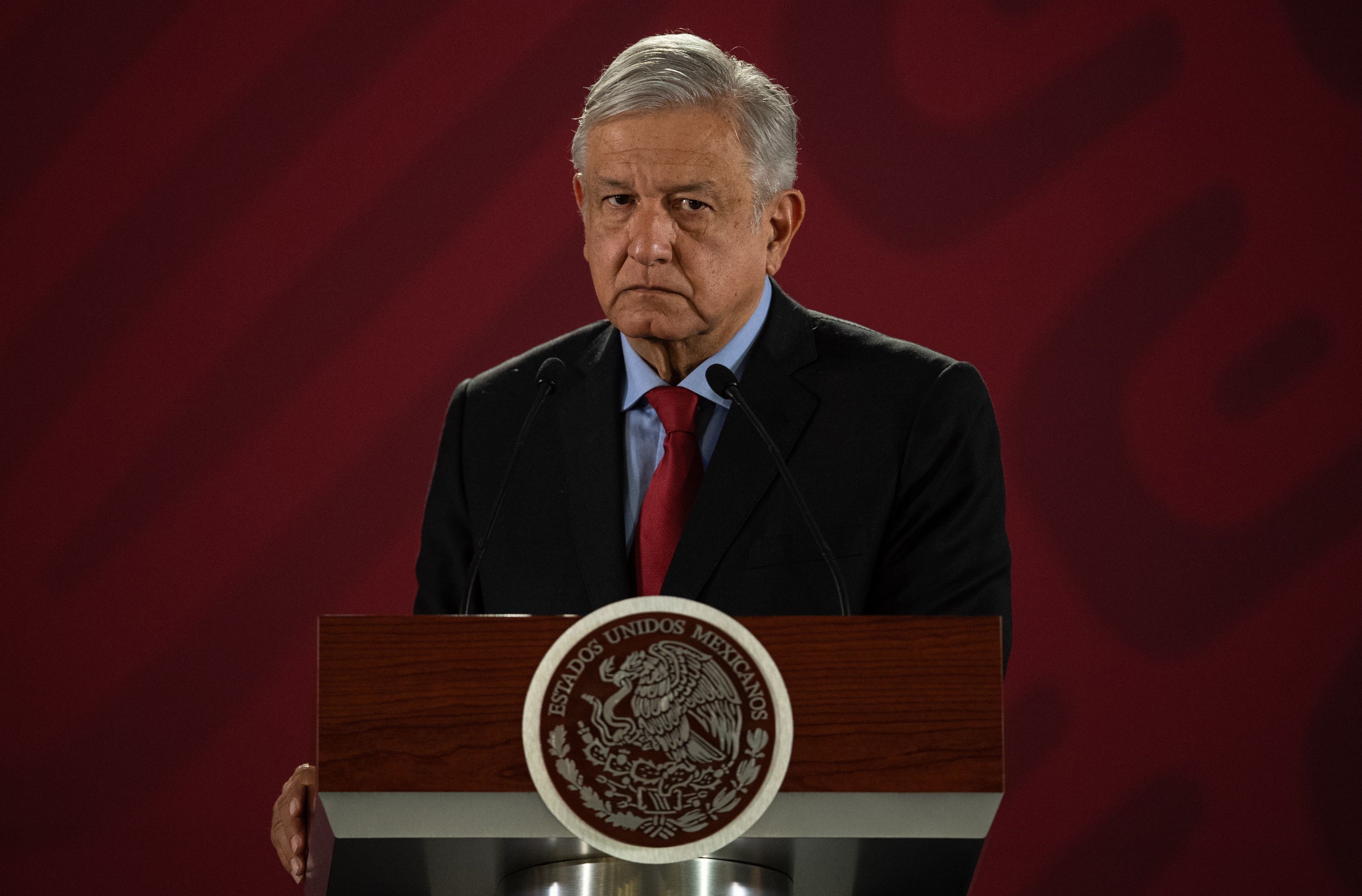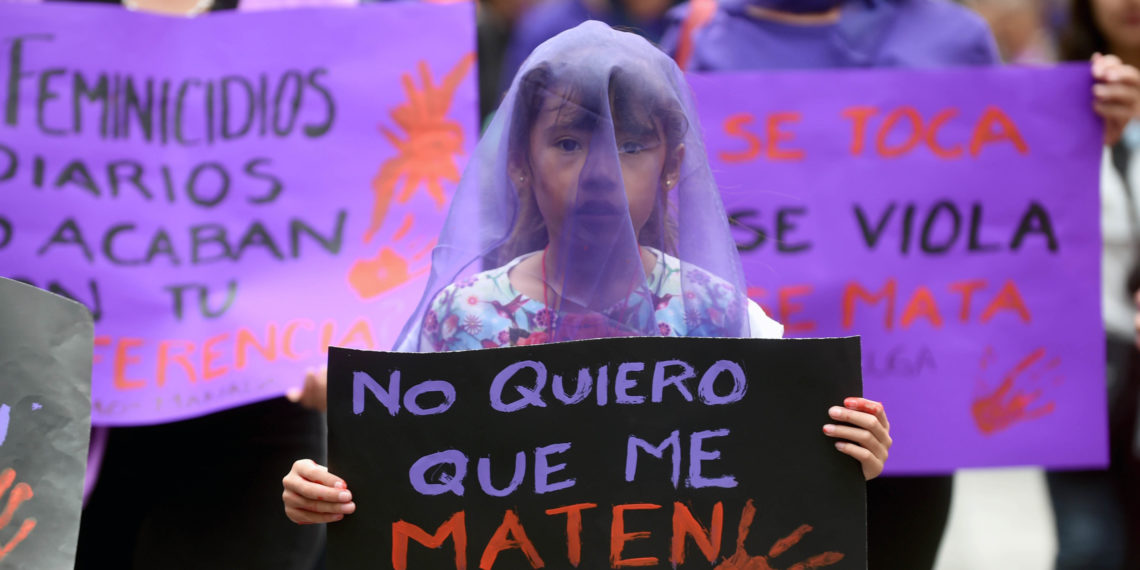On Monday, thousands of women disappeared from the streets of Mexico City. Hidden in their homes, they refused to be seen, whether in shops, schools, or the workplace. Their empty seats were a protest against the record numbers of violence against women in the Mexican capital.
At first glance, the national women’s strike in Mexico might seem like an unusual initiative. But could it be that women were already invisible long before the strike?
“What are they going to do without us if they are killing us?”
Thousands of women in Mexico are protesting increasing femicides and gender violence through “A Day Without Women.” They’re staying home from work or school so society can feel the impact of the absence of women. pic.twitter.com/OMKlTiwj1G
— AJ+ (@ajplus) March 9, 2020
No less than 3,825 women were killed violently in 2019. According to figures of the National Institute for Statistics and Geography, nearly 80 percent of women in Mexico City have experienced gender-based violence in their lifetime. Yet when women report rape, they risk ridicule and being victimized further.
Last year, a case of police officers allegedly gang-raping a teenage girl sparked outrage and has undermined women’s already fragile trust in authorities even further. This year, a 25-year-old woman was brutally murdered and skinned in northern Mexico City. Local newspapers published pictures of her mutilated body on their front pages.
Invisible Women
The spectacular nature of some of the violence against women in Mexico, and sensationalist reporting on it, has actually contributed to making Mexican women and the causes of the violence against them less visible.
As Chicano Studies scholar Roberto Hernández has argued, spectacles of violence conceal the ordinary in the same way as seeing the same act of violence repeated over and over hides its historical underpinnings.
In this way, violence in Mexico comes to be seen as perpetuating itself without reason or remedy. Women and their complex lives are distorted into a simplistic, deterministic victim narrative: just being a Mexican woman is already enough to be imagined as a victim by the Global North.
Different Stories
In reality, violence cannot be explained away as a private or freak phenomenon, or as just being universal. In my anthropological research on violence against women in a rural community on the southern outskirts of Mexico City, I found that every woman’s story was different.
A single mother and municipal government employee told me about her ex-partner’s drug addiction, violence, and her co-dependence, before finally gaining a feminist consciousness and independence. A young university student readily slapped her brothers, who had violently but lovingly trained her to “defend” herself. An elderly woman condemned young women for leaving their husbands despite having experienced abuse in her marriage. A high schooler was beaten up by her ex-boyfriend’s gang. A young mother’s body was found dumped by the highway.
Yet while every story was different, some broader patterns emerged, too. Violence against women was such a common phenomenon that women often spoke about it without the sense of shame and secrecy that I had observed when discussing such experiences with women in Germany.
So, violence was often considered normal. Moreover, local oral traditions recounted the rape of indigenous women at the hands of the Spanish conquistadors first, then Mexican soldiers and revolutionaries a few hundred years later. One might say that violence was inscribed into the memory of the place, while the present was flooded by horrifying media images of murdered women.
Structure of Violence
For the Mexican political theorist Sayak Valencia, violence against women in Mexico needs to be viewed through the prism of a larger structure of violence, which she terms “gore capitalism.”
This includes powerful drug cartels that traffic, rape, and murder women, abuses of state power, the excessive extractivism of mining companies (which has displaced many native populations), corrupt judges protecting men as the principal breadwinners of their families, and tabloids exploiting femicide cases.
Valencia argues that these distinct types of violence are linked to the capitalist economy and set the stage for everyday violence against women.

The possibilities for resisting this powerful structure of violence are limited. When women react to violence with anger, they risk a backlash. Mexico’s President, Andrés Manuel López Obrador, was quick to criticize feminist protesters in August 2019, admonishing them to act “responsibly, without violence, without affecting citizens.”
Similarly, many people living in Mexico City expressed sympathy with the protestors, while criticizing their destruction of public property. Memes of disgruntled brown cleaners’ wiping white women’s feminist graffiti off walls began spreading on social media.
In the upshot, violence against women emerges at the intersection of individual and collective historically, politically, and culturally shaped vulnerabilities. Those writing about violence in Mexico have the task to make this complex, long-standing but constantly evolving structure of violence visible. If they fail, Mexican women will remain invisible.
Disclaimer: The views and opinions expressed here are those of the author and do not necessarily reflect the editorial position of The Globe Post.






















